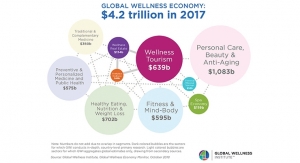12.05.18
Cancer is a major public health problem and is the second leading cause of death in the United States and worldwide; nearly one in six deaths are attributable to cancer. Cancer has long been perceived as an almost exclusively heritable disease, but science continues to reveal a new understanding of cancer as a complex, chronic disease that occurs along a spectrum of immune and metabolic function with many factors impacting risk, onset and severity.
Individual cancers are distinct disease states with multifactorial etiologies. Genetic influences are a piece of the puzzle just now being better elucidated, but many cancers have strong associations with nutrition and lifestyle. Therefore, personalized nutrition may be effective in disrupting cancer in all stages.
Increasing evidence shows that standard and conventional dietary patterns may not be appropriate after a cancer diagnosis. Instead, powerful dietary interventions such as short-term fasting and carbohydrate restriction can disrupt tumor metabolism, synergizing with standard therapies such as radiation and drug therapy to improve efficacy and ultimately, cancer survival.
The importance of identifying dietary interventions cannot be overstated, and the American College of Nutrition’s commitment to advancing knowledge and research is evidenced by dedication of the 2017 ACN Annual Meeting to “Disrupting Cancer: The Role of Personalized Nutrition” and the resulting proceedings manuscript, which summarizes the meeting’s findings.
Findings from the event were published in the Journal of the American College of Nutrition. Key highlights include support for personalized nutrition in fighting pediatric cancer; copper depletion for breast cancer recurrence prevention; the role of vitamin D in cancer prevention and treatment; carotenoids support for breast cancer prevention; the link between obesity and cancer; the role of diet and epigenetics in cancer prevention; among other relevant topics. For more information visit, www.tandfonline.com/doi/full/10.1080/07315724.2018.1500499.
Study authors include Taylor C. Wallace, Scott Bultman, Chris D’Adamo, Carrie R. Daniel, Justine Debelius, Emily Ho, Heather Eliassen, Dawn Lemanne, Purna Mukherjee, Thomas N. Seyfried, Qiang Tian & Linda T. Vahdat.
Individual cancers are distinct disease states with multifactorial etiologies. Genetic influences are a piece of the puzzle just now being better elucidated, but many cancers have strong associations with nutrition and lifestyle. Therefore, personalized nutrition may be effective in disrupting cancer in all stages.
Increasing evidence shows that standard and conventional dietary patterns may not be appropriate after a cancer diagnosis. Instead, powerful dietary interventions such as short-term fasting and carbohydrate restriction can disrupt tumor metabolism, synergizing with standard therapies such as radiation and drug therapy to improve efficacy and ultimately, cancer survival.
The importance of identifying dietary interventions cannot be overstated, and the American College of Nutrition’s commitment to advancing knowledge and research is evidenced by dedication of the 2017 ACN Annual Meeting to “Disrupting Cancer: The Role of Personalized Nutrition” and the resulting proceedings manuscript, which summarizes the meeting’s findings.
Findings from the event were published in the Journal of the American College of Nutrition. Key highlights include support for personalized nutrition in fighting pediatric cancer; copper depletion for breast cancer recurrence prevention; the role of vitamin D in cancer prevention and treatment; carotenoids support for breast cancer prevention; the link between obesity and cancer; the role of diet and epigenetics in cancer prevention; among other relevant topics. For more information visit, www.tandfonline.com/doi/full/10.1080/07315724.2018.1500499.
Study authors include Taylor C. Wallace, Scott Bultman, Chris D’Adamo, Carrie R. Daniel, Justine Debelius, Emily Ho, Heather Eliassen, Dawn Lemanne, Purna Mukherjee, Thomas N. Seyfried, Qiang Tian & Linda T. Vahdat.



















